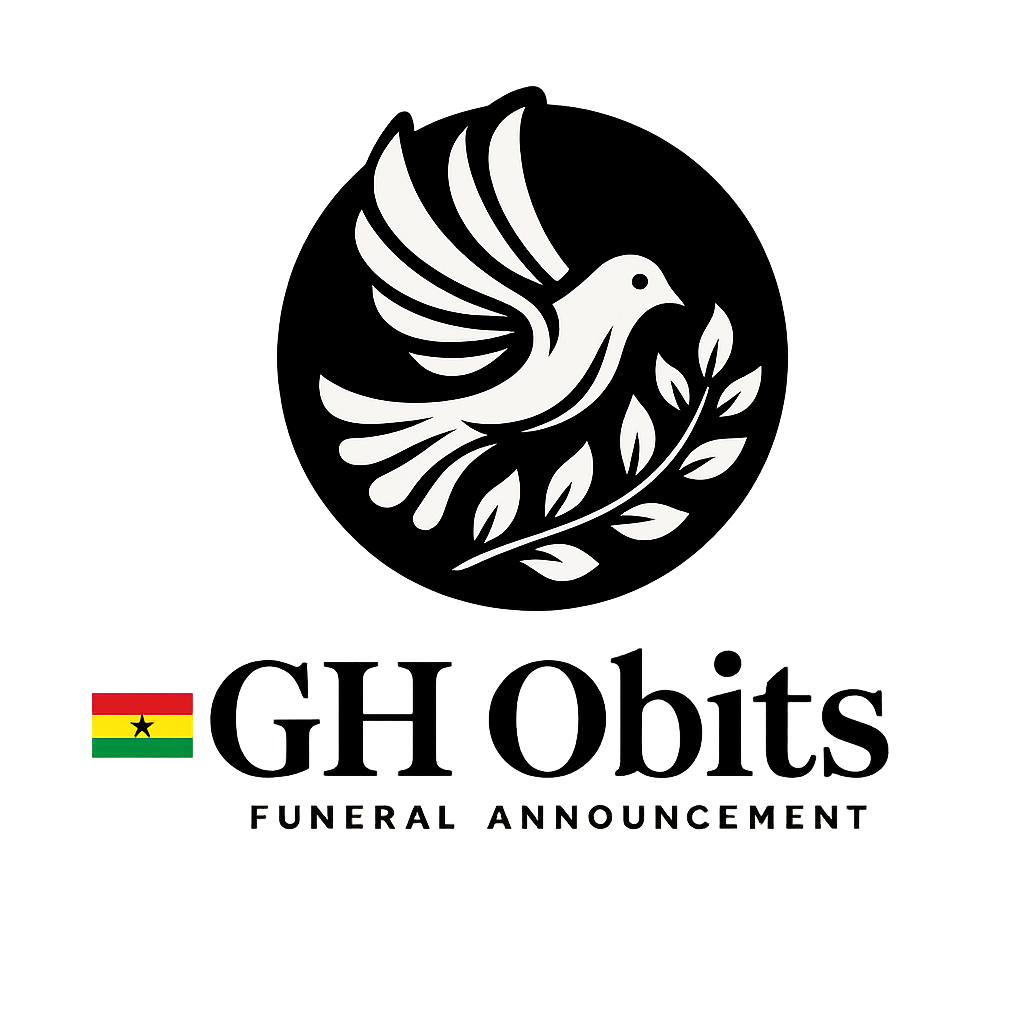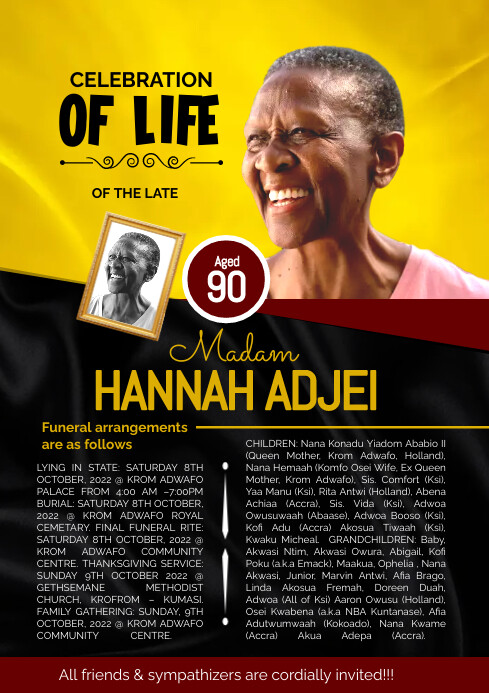Mad. Hannah Adjei Obituary
The choice of chief mourner is very important because he makes decisions such as who will succeed the deceased and how to mourn fittingly. He oversees the proper organisation and execution of all rites pertaining to the death, particularly ensuring that the deceased has a funeral that befits his or her status attained in life and is compatible with the social standing of the family in the community.
Women’s roles in Akan mourning rites, though extensive, are secondary to those of men. Women have the responsibility to bathe and prepare the dead body to be laid in state for mourners to file past it. These women are usually members of the deceased’s family and are well versed in handling dead bodies.
Women also fulfil the role of professional mourners or wailers. Some Akan lineages engage the services of these wailers to add solemnity to the mortuary rites. At ordinary Akan funerals where they are absent, it is the women who lament and wail during critical stages of the process. Men are culturally discouraged from loud wailing and weeping. The expression ɔbarima nsu, which means “a man does/must not cry”, calls on Akan men to refrain from such behaviour to avoid labels of effeminacy.
This norm in the mourning process is consistent with a cultural practice that generally demands that Akan men must not publicly display their emotions, even in the face of adversity, pain and suffering.
In contrast, a woman who does not weep or lament at the death of a close relative is suspected of being a malevolent witch responsible for the deceased’s death. Thus, the Akan mourning rituals can be culturally and psychologically coercive and oppressive for women.
Cash donations have become an important part of Ghanaian funerals. Both men and women make donations. But the archetype is that men will donate large sums of money to the bereaved family while women announce the donations and heap appellations on the male donors. For example, the compliments that women lavish on men to acknowledge their cash or kind donations may include mo ɔpeafo (well done), mompene no na ɔyɛ ɔbarima amu (let all praise him for he is a real man indeed) and other special names such as ɔdenoho (the affluent or independent one).
The male donor, female announcer gender hierarchy at funerals is another instance of gender role (re)enactment and performance. When men demonstrate economic prowess at funerals and women remain on the fringes as announcers, they are both performing and reinforcing a culturally given gender hierarchy.
The burden of mourning for males and females
We concluded from our findings that Akan death and mourning rituals can be culturally and psychologically oppressive against men and women. In the case of women, this is due to the unfair power hierarchy and the patriarchal nature of Ghanaian society.


Share a memory or condolence